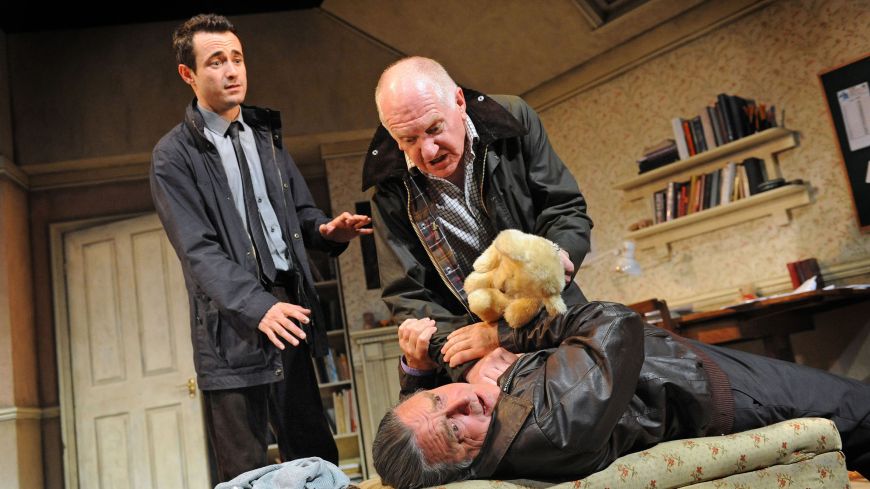
“Death has this much to be said for it: You don’t have to get out of bed for it. Wherever you happen to be They bring it to you – free.” -Kingsley Amis
It is an astonishing and, in some ways, unacceptable fact of our being that at some point during our lives, death is going to tap us on the shoulder and tell us that the party is over and that we have to leave. However, what is perhaps a slightly more daunting realisation is that we will outlive all of those that make our lives beautiful and meaningful. That we will, over time, lose everyone we love in this world.
As people die and disappear we are left, painfully, searching and wondering: what happened to them? It is here where superstition swoops in to provide supernatural consolment and a reassuring, if quietly crooked, smile. These provide comfort and are all well and good to a point, but it does leave its problems. Most importantly, it doesn’t teach people how to grieve and accept the reality.
It is grief and acceptance that is at the core of Haunting Julia. Ghosts serve different functions in different stories and more often than not it is to do with what they represent rather than what they appear to be.
Here, Julia’s father has outlived his daughter who committed suicide at the tender age of nineteen. Convinced that her spirit haunts her room, which has now been made part of a visitor centre to celebrate her musical genius, he brings in a former boyfriend of Julia’s, the hyper-rational Andy Rollinson, and psychic/charlatan Ken Chase to vindicate his belief and even make contact with the deceased.
As questions fly and tempers rage, pain and regret unravel before one another’s eyes. A rediscovered sense of loss sharpens their senses and provides a looking glass into their hearts where they find Julia, still lurking, in the most neglected and shadowy of corners.
What you have to understand about Haunting Julia before you buy yourself a ticket is that it is not what you think it is. There have been a lot of comparisons with the likes of The Woman In Black and other well regarded tales of terror and I cannot stress enough that these comparisons are wrong.
You will not find this a frightening theatrical experience on par with something like The Woman In Black. It simply is not that kind of show, despite what you have been led to believe. But don’t get me wrong. This is not a direct criticism of the play.
Haunting Julia is a firm examination of grief. In fact, I correct myself. It is an examination of finding the acceptance to be allowed to grieve. Of letting go of the ghost and dealing with the emotions left behind. Some may call this the approach of closure, though personally I find that a meaningless and rather moronic term.
It does stumble a little bit with the inclusion of large blocks of comedy. Whilst this can be a welcome lift from the dark subject matter, it did sometimes resemble the joker at the dinner table that tries to lighten and derail any potential serious conversation, probably in fear of an oncoming conflict.
It is witty and quintessentially northern, but it does overstay its welcome from time to time. The performances are all wonderful, with an especially moving turn from the ever terrific Duncan Preston, who you’ll no doubt recognise from Victoria Wood: as seen on TV and, perhaps most recently, his role as Stan in dinner ladies, again with Victoria Wood.
Richard O’ Callaghan is perhaps a little too Russell Grant as the deceitful, if equally well meaning, psychic and a toning down would have been welcomed. But this is forgivable and not so much of a distraction as to cause discomfort.
Despite its flaws, the show is an overall rewarding experience and leaves you pondering where the characters go from here. As I mentioned in the opening paragraph: what happened to them?
Saul Bellow once wrote “Death is the dark backing that a mirror needs if we are to see anything”. In other words, the understanding of a finite life provides clarity and even a sense of urgency. I would hope that these characters find life beyond this death and, dare I say it, find some good to take before that dark figure hands over their coat and guides them out the front door.
Show times
Til Sat 13 October, 7.30pm (Sat mat 2.30pm)
Tickets
£14 - £29

